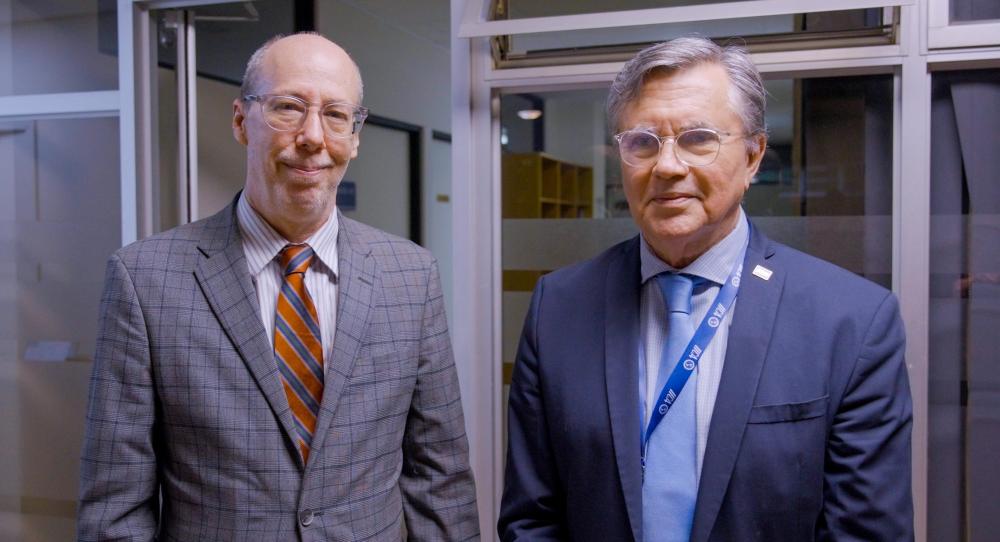Renowned international scholar, recognized for his work in science communication, praises IICA’s efforts to transform the narrative on agriculture’s contribution to food security and sustainability

San Jose, 29 July 2024 (IICA). Jack Bobo, Director of the Food Systems Institute at the University of Nottingham and the 2024 winner of the Borlaug CAST Communication Award, which will be presented to him at the World Food Prize Foundation, recognized the work of the Inter-American Institute for Cooperation on Agriculture (IICA) and its Director General, Manuel Otero, aimed at increasing the information available on the key role of agriculture in food production, combating climate change, and sustainability.
At the 2024 meeting of the IICA Executive Committee in San José, Costa Rica, which included the participation of over a dozen ministers and deputy ministers of Agriculture of the Americas, Otero explained to Bobo that the Institute has an Advisory Committee on Communication composed of more than 20 senior editors and journalists from major media outlets in Latin America, the Caribbean, and Spain, as well as the top communication experts from private sector entities linked to agriculture.
The Committee holds regular meetings, and its goal is to discuss current issues related to agriculture and rurality in the Americas. Topics such as agricultural resilience, rural leaders, and agriculture’s contributions to seeking solutions to climate change have been part of the discussions held in 2024 by this body, which was formed during the pandemic and relaunched this year.
“I think this work is incredibly important. If we go back 20 or 30 years, many people were closer to agriculture, but today consumers are far removed from the activity and need someone to talk to them about it. In the past, producers didn’t have this concern because people would go to the market and get to know each other, but nowadays, people in cities don’t know who they are”, said Bobo.
Manuel Otero stated that the technical cooperation provided by IICA to its member countries must be based on communication. “We need to convey to society what we are doing and advocate for the flourishing of agriculture in Latin America and the Caribbean in a rational, pragmatic, proactive, and self-critical manner”, he said.
In his dialogue with Otero, Jack Bobo, who worked for 13 years at the United States Department of State on global food policy, commented that the Advisory Committee on Communication offers an unparalleled opportunity to engage with journalists on a new narrative focused on the interrelationship between agriculture, the economy, the environment, and social development.
“The Council is a useful tool to better understand and communicate the role of science and the importance of agriculture, and why consumers must have greater awareness of how food is produced”, said Bobo, who was announced as the winner of this year’s Borlaug CAST Communication Award.
This award recognizes efforts to incorporate science into public policies on agriculture, food, and the environment. It is presented by the Council for Agricultural Science and Technology (CAST), a nonprofit organization dedicated to publishing agricultural reports and information, whose members come from the scientific, academic, and private sectors.
The award will be presented to Jack Bobo in October 2024 at the Borlaug Dialogue of the World Food Prize Foundation in Des Moines, Iowa, USA.
A Link Between Producers and Consumers
The Director General of IICA explained that communication on issues related to agriculture and rurality helps to build bridges between producers and consumers. “We cannot consider rural areas as isolated, but rather as places that must be connected to urban centers. This way, we can explain how food is produced and why it is done in a certain way”, said Otero.
“This is correct, because in many ways science tells us what we can do, but the public tells us what we should do. If the public doesn’t understand agriculture, it might not be possible to provide them with what they want, which is why dialogue is critical”, Bobo pointed out.
More information:
Institutional Communication Division.
comunicacion.institucional@iica.int